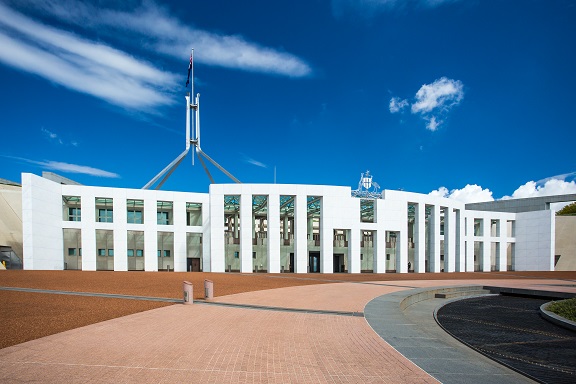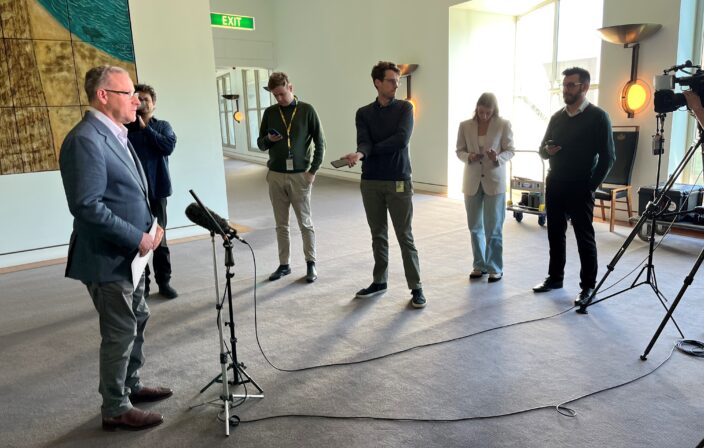Joint statement from the CEOs of Australia’s chambers
7 Feb 2024
|Media Release

Joint statement from the CEOs of Australia’s chambers
On behalf of business operators across Australia, we urge the Senate to carefully reconsider the implications of this rushed and flawed industrial relations legislation.
The national, state and territory business chambers are united in support of our small and family enterprise business community that is already under significant pressure from rapidly rising costs.
We are gravely concerned that the proposed legislation will harm all business owners and operators, especially growing ones. The legislation will also impact the prospects for the very employees that it purports to protect. It will damage the communities that are reliant on the growth and resilience of local businesses.
Our members employ millions of Australians across regions, towns, cities, and every sector. Most of our members are small businesses that contribute so much, and we will burden them with additional constraints and costs.
These costs will be passed on to the community or result in the loss of jobs. Or both.
Small business owners are already subject to a bewildering array of bureaucratic constraints, and this legislation will further bind them in red tape.
A one-size-fits-all approach to the casual labour market, in an economy that is already short of essential skills, could not come at a worse time. It will negatively affect those workers who welcome flexibility in their lives, and at a time when flexibility and skill-share is a rising economic saviour.
We encourage the Senate to view this legislation through the broad lens of mainstream Australia, where family enterprise and small business is the lifeblood of the economy and community.
In particular, amendments proposed by the Greens have not been subject to any scrutiny or consultation and were not on the table when the Senate committee held hearings around Australia late last year.
Specifically, we are worried about these elements of the legislation:
- Employee-like forms of work. The definition is too broad and will capture many independent contracting arrangements in industries where the government does not intend to set minimum standards.
- Casual employment. Until the Fair Work Commission makes a determination, employers will face substantial risk when employing casuals. This will make hiring casual employees unattractive, impacting job creation and those workers who embrace the flexibility of casual jobs.
- Powers for union officials. The legislation will give union officials increased rights to enter a workplace without notice, despite only 8 per cent of private sector employees being union members.
- Road transport. This is the effective re-establishment of the Road Safety Remuneration Tribunal, which was found to be disastrous for owner-drivers.
- Intractable bargaining. Unions would be incentivised to drag out a bargaining dispute and force matters to be arbitrated. By definition, an employer would always be worse off on any term to which parties cannot agree.
- Right to disconnect. Employees already have legal protections against working unreasonable additional hours outside work. Modern technology has provided flexibility to the workforce and many employees no longer need to sit behind a desk from nine to five, which parents have embraced. By agreement with their employers, they can work flexibly in a way that suits them and their families and maintain a work-life balance.
We cannot allow industrial relations laws to make it harder for hard-working business owners to generate the wealth we enjoy as a nation.
We cannot allow industrial relations laws to make it harder for small business owners to grow, create valuable jobs and invest in skills.
This bill will bring many unintended consequences and should not be supported in its present form.
Statement by the Chief Executive Officers of Australia’s chambers:
Andrew McKellar, Australian Chamber of Commerce and Industry
Daniel Hunter, Business NSW
Paul Guerra, Victorian Chamber of Commerce and Industry
Chris Rodwell, Chamber of Commerce and Industry Western Australia
Greg Harford, Canberra Business Chamber
Heidi Cooper, Business Chamber Queensland
Michael Bailey, Tasmanian Chamber of Commerce and Industry
Greg Ireland, Chamber of Commerce Northern Territory
Andrew Kay, Business SA


